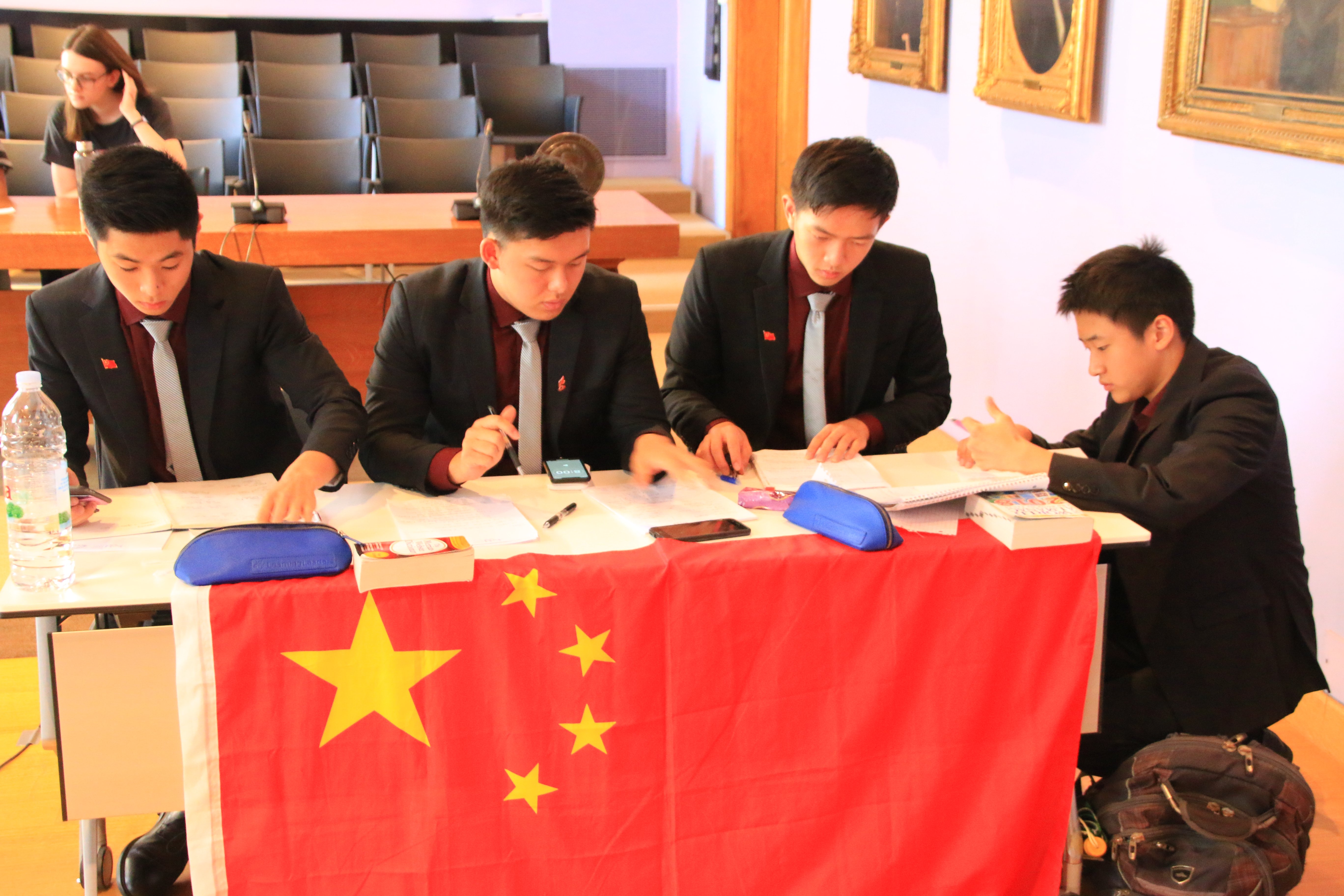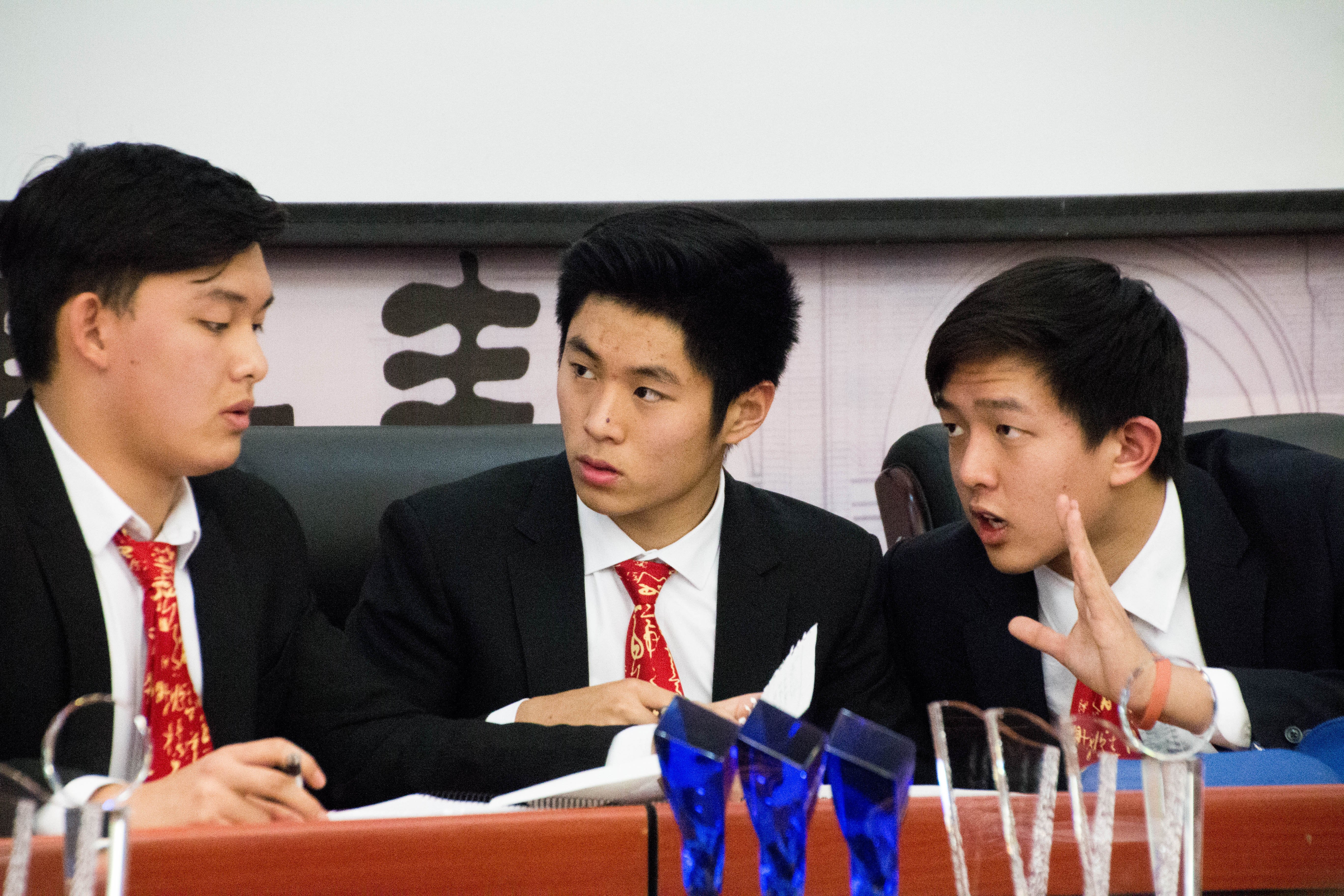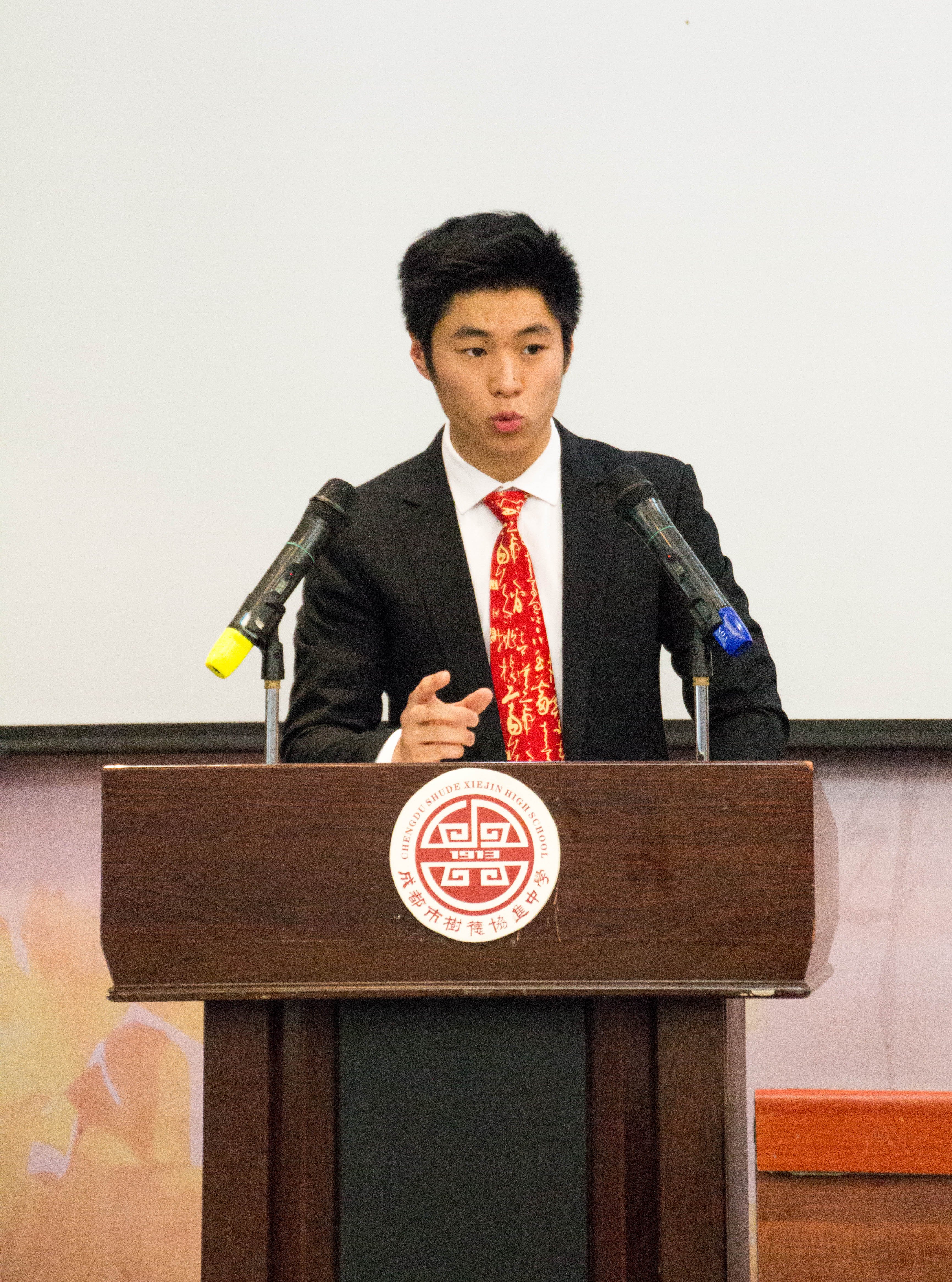STUDENT SUCCESS STORY
How Evan's Prep Time Mastery Lead to a World Championship


Evan's Story
COUNTRY
China
RESULTS
Won the World Schools Debating Championship
WHERE IS HE NOW?
Duke University
"Don't get together right away, eager to share your thoughts. Because once people start sharing ideas, they may be bound by these ideas and unable to come up with more unique ideas."
- Evan Shen
Former WSDC Team China member Evan Shen shares his tips on how to use your prep time. He has rich experience and outstanding performance in both public forums and world school debates. In addition to being a former Team China member, his good results also include: WSDC US Nationals 2018 Finalist, WSDC China Nationals 2018 champion, SIDC 2017 champion and so on. Currently Evan is studying at Duke University.
In the World Schools Debating Championships (WSDC), after the impromptu debate topic is proposed, both Gov and Opp team will have an hour of preparation time. One hour is a long preparation time, and it is very important to make good use of it. That way you can come up with a case as quickly as possible but still have enough time to make sure it's the best you can think of. Here are some tips to help your team use this time as efficiently as possible.
Step 1 - Keep Time
An hour of prep time may seem like a long time, but a lot of the time it doesn't seem like it. An hour flies by quickly. It's easy to lose sight of what you've actually done, or spend too much time discussing the small details of the debate.
Step 2 - First 10 Minutes
In the first ten minutes after you hear the topic, I think this time is best used for personal brainstorming.
Don't get together right away, eager to share your thoughts. Because once people start sharing ideas, they may be bound by these ideas and unable to come up with more unique ideas. Therefore, before starting each round of discussion, setting 10 minutes for each debater to think about the debate independently is a very effective way to help you come up with more original ideas.
Step 3 - Discuss
After each debater thinks independently, most of them should already have an image of the topic, or at least some general ideas. On this basis, the debaters should get together to discuss their ideas, so that a consistent team plan can be reached.
At this stage, usually the debaters will have some similar ideas, but also many unique points of view. So the debaters should go into a room and discuss what they've come up with.
It is especially important that, in the early stages of the discussion, people should not get bogged down in small details or argue endlessly about the topic. Because it is easy to lose control of time and fail to achieve ideal progress. It's a good way to have everyone share and present their ideas individually so everyone can be on the same page. What questions are most important and how best to present our arguments.

Step 4 - Reach a Consensus
Once you've passed the halfway point in prep, it's time to come to a team consensus on how you are going to approach the debate.
At this point in time, the details of each argument haven't been fully refined, but there should all be an agreement on which arguments should be made in this debate, and which ones should be argued by teams. After this, we move on to the final part of the preparation time. Write down the arguments and let all the discussion land on paper.
Step 5 - Final Half Hour
During the last half hour of prep time, it's usually a good idea to split the team into two groups, with one person or team writing a speech for either the pro or con side. Another group wrote to refute or predict the possible arguments of their opponents.

Step 6 - Assign Responsibility
The specific responsibilities of each member usually vary based on the number of members in the team. Sometimes there are 3 members on a World Schools team, or sometimes 5 members on a team for a full World Schools debate.
In the case of 3 people, it is usually recommended to have two people prepare the affirmative speech, and the remaining member prepares to refute the opponent's possible arguments, as well as the question that may be used in the debate. When your team has 5 people, you can spend more time, not just preparing rebuttals, but assigning specific people to prepare the other party's possible arguments and consider the other party's arguments.
Step 7 - Index
It's nice to have a member of the team who can easily use the index and find information. Although an index is not necessary in a debate, it can be useful in certain situations in a debate, such as when you want to quickly find information, background knowledge, facts, or available examples. These are great ways to use resources in the world school system.
Step 8 - Last 10 Minutes
In the last ten minutes before the end of prep time, it would be a good idea to finish the entire speech and write it down. After this, the affirmative should rehearse the speech to be given. This allows for a smooth and eloquent speech to the referee once the game has started and ensures no or minimal mistakes are made.
Disagreements are an inevitable part of team preparation, but it's important not to dwell on them for too long. Anyway, keep the discussion moving forward. After 60 minutes, start the game, trusting your argument, trusting your ability to express it, is the most important part.

Request Your Free Placement Test Today
Our Admissions Team will contact you within a day.